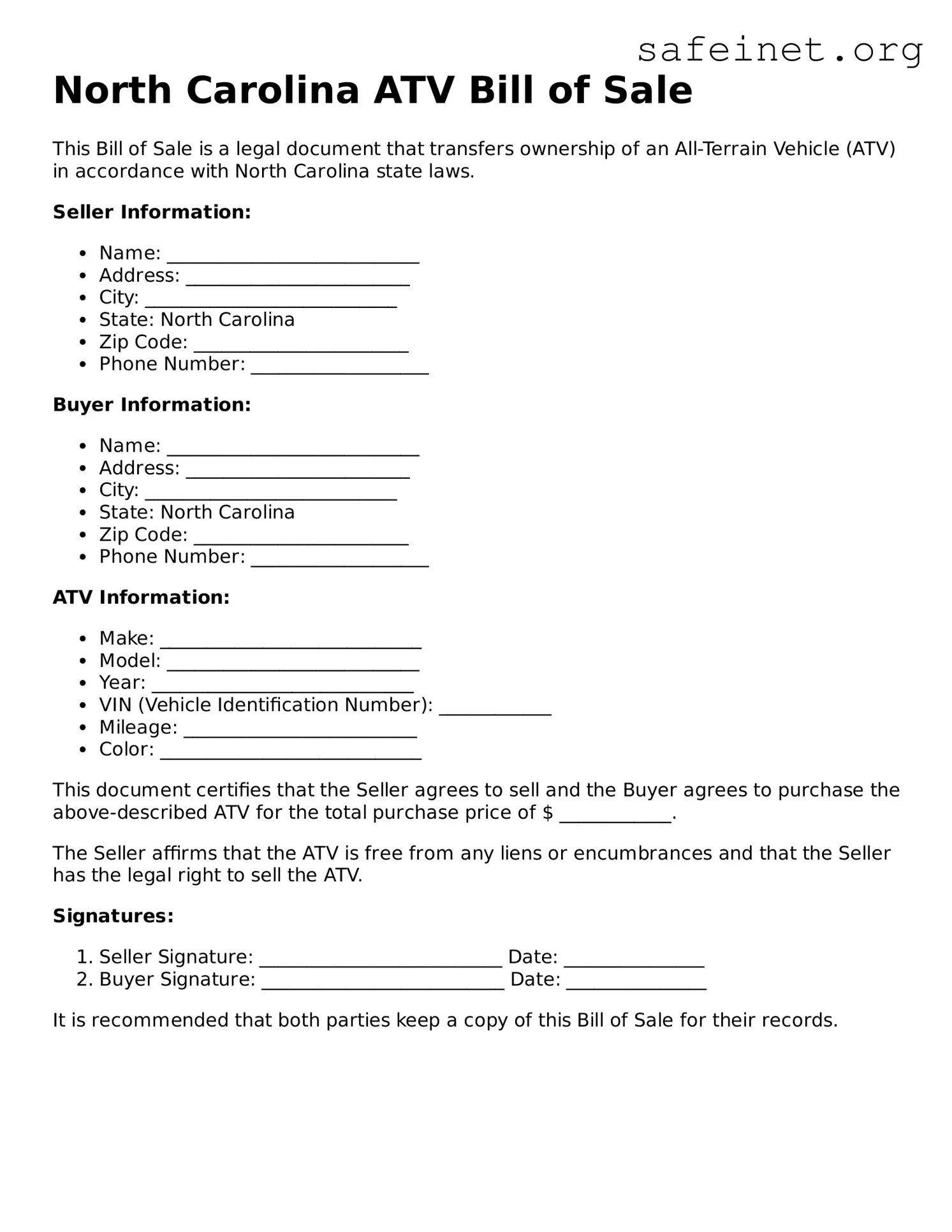The North Carolina ATV Bill of Sale form is a document used to legally transfer ownership of an all-terrain vehicle (ATV) from a seller to a buyer. This form includes important information about the transaction, including details about the ATV, the parties involved, and the sale price. Having this document helps protect both the buyer and seller in the event of disputes or legal issues regarding ownership.
What information should be included in a North Carolina ATV Bill of Sale?
A complete Bill of Sale should include the following information: names and addresses of both the seller and buyer, a description of the ATV (make, model, year, VIN), the date of the sale, and the sale price. It may also be beneficial to include the condition of the ATV at the time of sale and any warranties or disclaimers stated by the seller.
How can I obtain a North Carolina ATV Bill of Sale form?
You can create a North Carolina ATV Bill of Sale form yourself using templates available online or download a pre-made form. Additionally, local ATV dealerships or legal offices may provide forms. Ensure that the form you choose meets the specific requirements outlined by North Carolina law.
Who should sign the ATV Bill of Sale?
Both the seller and buyer should sign the Bill of Sale to make it a binding agreement. Their signatures confirm that both parties agree to the terms of the sale. It is also advisable to have a witness sign the document if possible, as this adds an extra layer of verification.
What do I do after filling out the Bill of Sale?
After completing the Bill of Sale, both the buyer and seller should keep a signed copy for their records. The buyer may then proceed to register the ATV with the North Carolina DMV using the Bill of Sale, along with any other required documents. This registration process establishes the buyer as the legal owner of the vehicle.
Can a Bill of Sale be amended?
If changes need to be made once the Bill of Sale has been completed, both parties must agree to the amendments and initial the changes made to the document. This ensures that the modifications are recognized and that both parties are aware of the updates. However, it is generally advisable to create a new Bill of Sale if significant changes occur.
What if the seller does not provide a Bill of Sale?
If the seller does not provide a Bill of Sale, it is in the buyer's best interest to request one. Without it, the buyer may face complications during the registration process and could have difficulty proving ownership in the future. Buyers are encouraged to make a Bill of Sale a condition of the sale before completing the transaction.
What if I encounter issues after the sale?
If issues arise after the sale, such as disputes over the condition of the ATV or claims of unpaid liens, having a signed Bill of Sale can aid in resolving these problems. This document provides a clear record of the transaction and the agreement between the two parties. In complicated cases, seeking legal advice may be beneficial.
